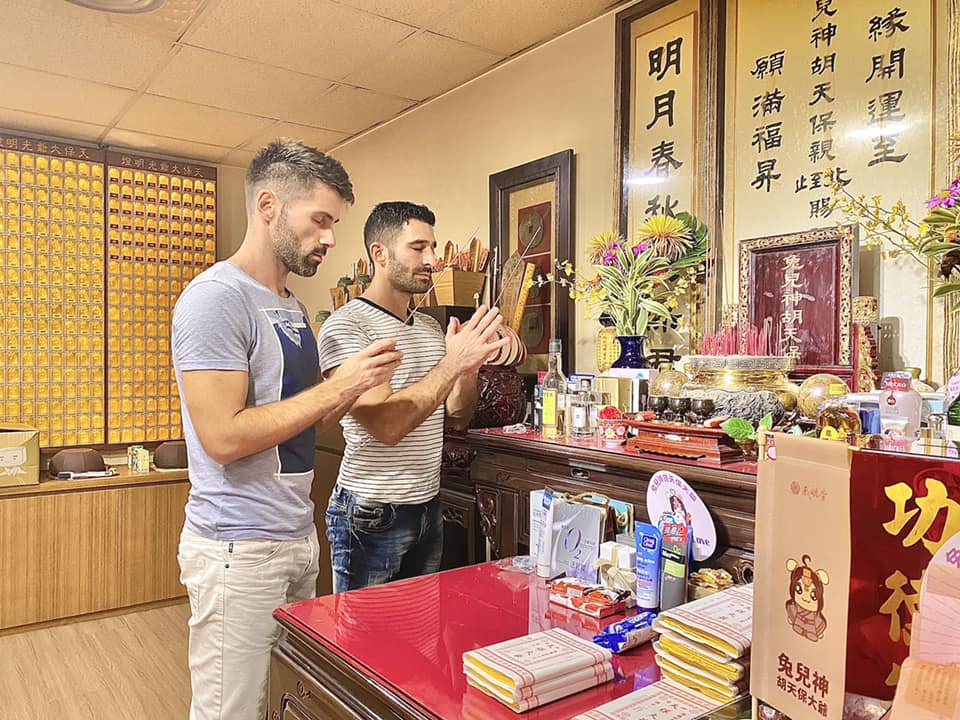In a quiet mid-week afternoon on the eighth floor of an office building, 24-year-old A-wei is meditatively separating flower petals to make an offering to Tu’er Shen, the rabbit god, a spiritual guardian of the LGBTQI community. The temple is a humble room with views across New Taipei City, made cozy by the smell of incense and the mews of two noisy cats. At one end of the room is the main altar with gold prints of deities on the wall. To the left is the secondary “side altar,” devoted to Tu’er Shen, the patron saint of the LGBTQI community.
The temple, believed to be the only Taoist site set up to revere the rabbit god Tu’er Shen, has become a significant symbol for the queer community in Taiwan and China. In Chinese history, “rabbit” has often been a derogatory or slang term for homosexual people, but through cultural storytelling and efforts like those of the temple’s founder Lu Wei-ming, it has become a safe haven for marginalized individuals seeking religious comfort. Lu founded the temple in 2006 on the basis of providing a space for people abandoned by family and religion. Today, the temple is a place for anyone to pray for love, friendship, and academic success.
Tu’er Shen, the rabbit god, is revered based on the 17th-century Fujian folk tale of Hu Tianbao, an intellectual who fell in love with a visiting provincial official. Hu spied on the official but was caught, and the official killed him. A villager later said Hu came to him in a dream, saying that the underworld made fun of him and called him “rabbit” but was not angry at him and had appointed him as Tu’er Shen to manage romantic relationships between men. Though the provenance of the story is disputed, the temple’s dedication to serving the LGBTQI community is undisputed.
Lu uses the yin-yang symbol to argue that Taoism contains an acceptance of the spectrum of sexualities. In Taoism, women and men are also a yin and yang phenomenon. This shows that the same-sex culture in Taoism is natural. Despite Taiwan’s progressive environment, society and religion on the island can still be deeply conservative. The temple has attracted some hostility over the years, but the staff say there is broad acceptance, and a sizable visiting congregation.
The Rabbit God Temple is not just a spiritual sanctuary, but also a symbol of hope for the LGBTQI community in Taiwan. It has changed the narrative of Chinese cultural symbolism and is a place where marginalized individuals can seek comfort, regardless of their sexual orientation.

